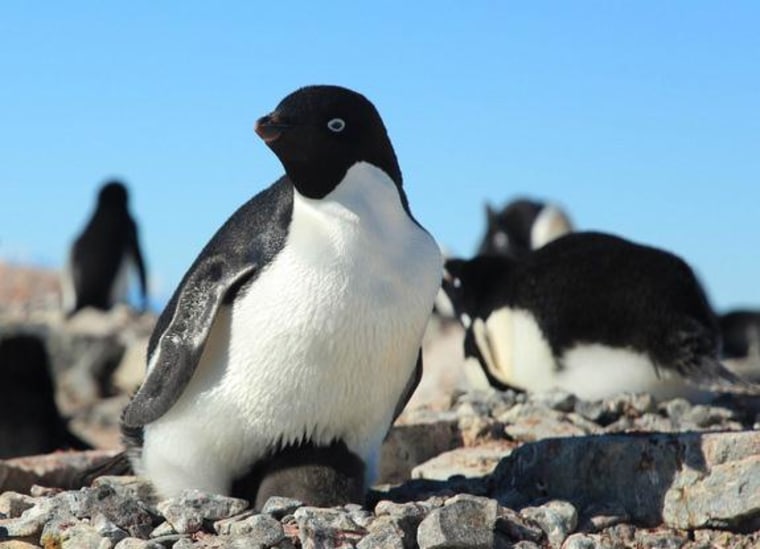Since the last ice age, penguins have basked in warmer Antarctic climates because less ice makes it easier for the birds to breed and hunt for food, a new study reveals. But there's a key caveat: Current climate change is happening too fast for their food supply to keep up with demand.
Declines in some species of penguins have been happening for the past 1,000 years, but are getting worse as climate change accelerates, the study found.
Researchers examined how populations of penguins changed since the end of the last ice age, some 11,000 years ago. The scientists looked specifically at three current Antarctic penguin species: gentoo, Adelie, and chinstrap. All three of these species prefer ice-free waters to look for food, and ice-free land to nest and raise youngsters.
"We typically think of penguins as relying on ice, but this research shows that during the last ice age, there was probably too much ice around Antarctica to support large populations," study lead author Gemma Clucas, a postdoctoral marine biologist and ecologist at the University of Southampton in the United Kingdom, said in a statement.

But too little ice is hurting some penguin populations now, the study found. One of the penguins' main sources of food — krill, or shrimp-like crustaceans — prefer to eat algae that clings to the bottom of sea ice.
"We are not saying that today's warming climate is good for penguins; in fact, the current decline of some penguin species suggests that the warming climate has gone too far for most penguins," study co-author Tom Hart, a researcher in the department of zoology at the University of Oxford in the U.K., said in a statement.
- Elizabeth Howell, Live Science
This is a condensed version of an article that originally appeared in Live Science. Read the entire story here. Follow Elizabeth Howell @howellspace, or LiveScience on Twitter @livescience. We're also on Facebook & Google+.
- Antarctic Album: Chinstrap Penguins of Deception Island
- 8 Ways Global Warming Is Already Changing the World
- Charming Chicks: Antarctica's Baby Penguins
Copyright 2014 LiveScience, a TechMediaNetwork company. All rights reserved. This material may not be published, broadcast, rewritten or redistributed.